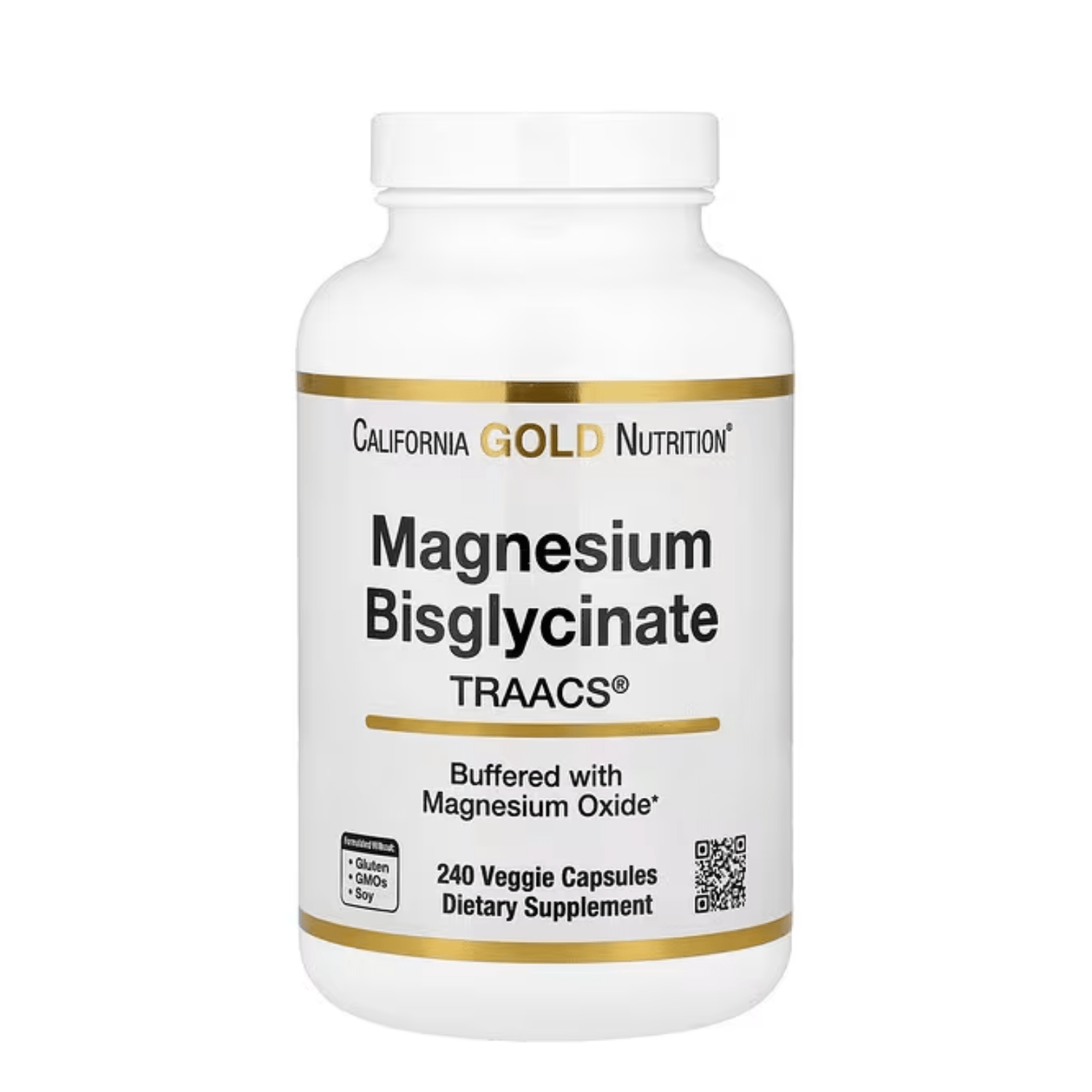Magnesium is more than just another health supplement—it’s essential for life. From supporting muscle function to maintaining heart health and optimizing brain function, this mineral is involved in over 300 biochemical reactions in the body. Yet, many people don’t get enough magnesium due to modern diets and lifestyle habits.
Why Magnesium Matters
Most people focus on minerals like calcium for bones or iron for energy, but magnesium is just as crucial. It helps regulate nerve and muscle function, supports metabolism, and ensures proper heart rhythm. Magnesium also improves the absorption of zinc, calcium, potassium, phosphorus, and iron, making it a key player in overall health.
Symptoms of Magnesium Deficiency
A magnesium deficiency can lead to various health issues, including:
- Muscle cramps and spasms – Magnesium helps muscles contract and relax. Deficiency can lead to tightness, stiffness, and pain.
- Fatigue and brain fog – Magnesium is needed for energy production, and low levels can leave you feeling constantly exhausted.
- Anxiety, stress, and poor sleep – Magnesium supports brain and nervous system function. A lack of it can contribute to insomnia, anxiety, and mood imbalances.
- Heart irregularities – Magnesium plays a role in regulating blood pressure and heartbeat. Deficiency increases the risk of hypertension and arrhythmias.
Given its importance, choosing the right type of magnesium is key to optimizing your health.
The 13 Types of Magnesium and Their Benefits
1. Magnesium Citrate – Digestive & Muscle Support
Magnesium citrate is one of the most popular forms because it’s highly absorbable and supports digestion and muscle function. It is commonly used for relieving constipation, as it helps draw water into the intestines, softening stools for easier elimination. This form is also great for relaxing muscles and preventing cramps.
2. Magnesium Glycinate – Best for Stress & Sleep
This form is bound to glycine, an amino acid that has a calming effect on the brain. It is one of the best forms for reducing anxiety, promoting relaxation, and improving sleep. Magnesium glycinate is also gentle on the stomach, making it a great choice for those with digestive sensitivities.
You can find magnesium glycinate here
3. Magnesium Malate- Energy & Chronic Pain Relief
Magnesium malate is bound to malic acid, which plays a role in energy production. It is often recommended for people with chronic fatigue syndrome and fibromyalgia because it reduces muscle pain and enhances endurance. This form also helps remove aluminum toxicity from the body.

4. Magnesium Taurate – Heart & Cardiovascular Support
Magnesium taurate is a combination of magnesium and taurine, an amino acid known for supporting heart health. This form helps regulate blood pressure, improve circulation, and reduce the risk of heart disease. It also has a calming effect on the nervous system, making it a good option for those with stress-related heart issues.
5. Magnesium L-Threonate – Best for Brain Function & Memory
This form is unique because it can cross the blood-brain barrier, meaning it directly benefits the brain and nervous system. Magnesium L-threonate has been studied for its ability to improve cognitive function, enhance memory, and reduce brain fog. It is often recommended for people looking to prevent cognitive decline or improve mental clarity.
6. Magnesium Chloride – Best for Skin & Detox
Magnesium chloride is commonly found in topical sprays, gels, and lotions. It is well-absorbed through the skin, making it an excellent choice for muscle relaxation, pain relief, and improving skin health. This form also supports detoxification by assisting kidney function and removing toxins from the body.
7. Magnesium Sulfate (Epsom Salt) – Muscle Recovery & Detoxification
Better known as Epsom salt, this form is widely used in baths for muscle relaxation and detoxification. Magnesium sulfate helps reduce inflammation, relieve muscle soreness, and promote relaxation. It is also used internally as a laxative, but frequent use can cause digestive discomfort.
8. Magnesium Carbonate – Antacid & Digestive Support
This form is commonly used as an antacid to relieve heartburn and acid reflux. It converts to magnesium chloride in the stomach, making it easier to absorb. It also helps support healthy digestion and balances stomach acidity.
9. Magnesium Oxide – Laxative & Digestive Relief
Magnesium oxide has a lower absorption rate but is effective as a laxative for treating constipation and bloating. It is sometimes used to relieve indigestion and to increase magnesium levels quickly in cases of severe deficiency. However, it’s not the best form for long-term supplementation due to its low bioavailability.
10. Magnesium Phosphate – Bone & Cellular Health
This form plays a role in bone health, nerve function, and muscle contractions. It is essential for producing ATP (the body’s main energy source) and supports cellular function and metabolic health.
11. Magnesium Aspartate – Energy & Athletic Performance
Magnesium aspartate is often found in sports supplements due to its role in energy metabolism and muscle recovery. It helps reduce fatigue, improve endurance, and enhance muscle strength.
12. Magnesium Orotate – Cardiovascular & Cellular Support
Magnesium orotate is highly beneficial for heart health and cellular energy production. It helps improve circulation, reduce oxidative stress, and support overall cardiovascular function. This form is often recommended for athletes and those with heart conditions.
13. Magnesium Hydroxide – Digestive Cleanse & pH Balance
Magnesium hydroxide is commonly found in milk of magnesia and is used as an antacid and laxative. It helps relieve acid reflux, indigestion, and constipation by neutralizing stomach acid and promoting bowel movements.
How to Absorb Magnesium Effectively
There are two main ways to increase magnesium levels:
- Oral Supplements – Capsules, powders, and liquid forms are commonly used. Choose the right type based on your specific health needs.
- Topical Absorption – Magnesium sprays, gels, and bath flakes allow your body to absorb magnesium through the skin, making it a great alternative for those with digestive issues.
Why Transdermal Magnesium is Beneficial
One of the biggest advantages of magnesium sprays and creams is that they allow your body to regulate absorption naturally, reducing the risk of over-supplementation. Bathing with magnesium flakes also provides deep relaxation while restoring magnesium levels.
Support Your Health with Magnesium
Magnesium is essential for overall well-being. Whether you need it for energy, muscle recovery, sleep, heart health, or brain function, choosing the right form is key.
In addition to magnesium, maintaining gut health is essential. Holistic colon hydrotherapy can support digestion and improve nutrient absorption, further enhancing your well-being.




0 Comments